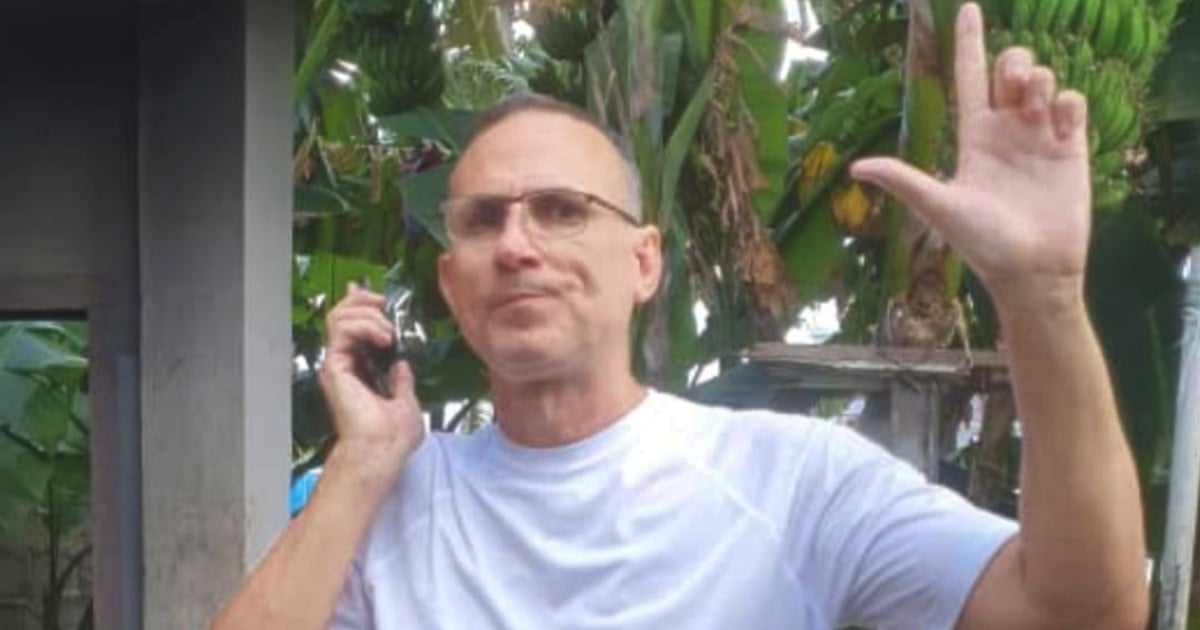
Related videos:
The prominent Cuban opposition leader José Daniel Ferrer García, who had been in prison for three and a half years, was released this Thursday, as confirmed on social media by his sister, Ana Belkis Ferrer.
"I am Ana Belkis Ferrer García. My brave brother José Daniel Ferrer García has been released. FREEDOM for ALL", the family source wrote on social media.
Previously, the activist Rosa María Payá had foreseen the circumstances surrounding Ferrer's release from prison.
"I just spoke with José Daniel Ferrer. The repressors had to release him from prison because he refused conditions for his freedom. Firm and ready to continue the fight until Cuba is free! Heart of a hero! What pride!", wrote Payá on X.
Considered a "prisoner of conscience" by Amnesty International (AI), José Daniel Ferrer was imprisoned on July 12, 2021, during the anti-government protests of July 11.
Leader of the Patriotic Union of Cuba (UNPACU), Ferrer -who is currently 54 years old- has been a staunch opponent of the Cuban communist regime for many years, which has led to multiple imprisonments, persecutions, and reprisals for his political activities.
Born on July 29, 1970, in Santiago de Cuba, José Daniel Ferrer is undoubtedly one of the most prominent figures in the fight for human rights and civil liberties in Cuba in recent decades. For many, he is the most significant figure after the death of Oswaldo Payá.
His activism began in the 1990s. In March 2003, during the so-called "Black Spring", Ferrer was arrested along with 74 other opponents in a repressive wave against dissidents, independent journalists, and activists.
He was sentenced to 25 years in prison on charges of "acts against the independence and territorial integrity of the State."
During his imprisonment, Ferrer became a symbol of peaceful resistance, denouncing the inhumane conditions in Cuban prisons and promoting solidarity among political prisoners.
Foundation of UNPACU
In 2011, following his release on a humanitarian license facilitated by the mediation of the Catholic Church and the Spanish government, Ferrer founded the Patriotic Union of Cuba (UNPACU).
This movement emerged as a platform to coordinate civil resistance and demand democratic reforms, freedom of expression, and respect for human rights.
Based in Santiago de Cuba, UNPACU has become one of the most active opposition groups on the island, employing strategies such as the distribution of food and medicine, peaceful protests, and awareness campaigns.
Persecutions and imprisonment
In recent years, Ferrer has been subjected to constant arbitrary detentions, raids, and smear campaigns by the Cuban authorities.
In October 2019, he was arrested again on charges of "assault" and "deprivation of liberty," accusations that international organizations believe were fabricated to silence his dissident work.
His arrest generated widespread international condemnation, including statements from Amnesty International, Human Rights Watch, and the European Parliament, which have recognized him as a prisoner of conscience.
He was under house arrest at the time of the protests, which ultimately led to his return to prison.
Release of political prisoners in Cuba
In addition to Ferrer, 27 Cuban political prisoners, including Luis Robles Elizástigui and demonstrators from the 11J protests, have been released in the first 36 hours following the agreement reached by the Havana regime with the United States through the Vatican.
The Cuban government announced on January 14, 2025, the gradual release of 553 individuals serving sentences for various offenses.
In a statement, the regime specified that these releases would be carried out under special conditions, allowing the freed individuals to remain under surveillance and with outstanding legal commitments, such as temporary extrajudicial licenses.
Cubalex, an organization dedicated to the defense of human rights, is conducting an independent verification of each of the confirmed cases.
Although these individuals have been released, they are not fully free, as they still must comply with other legal obligations under specific conditions, reports Cubalex.
Filed under: